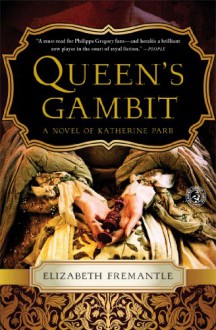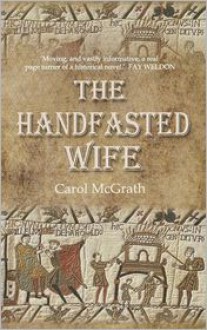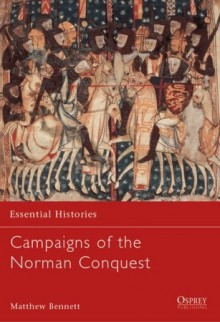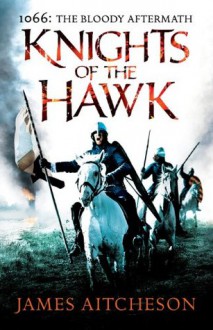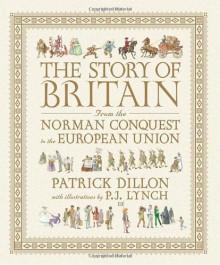Being English, I see Hastings from the English side. We were invaded. They came from Normandy. They won, we lost. Later, we fought back. And lost again. I 'know' of course, about how badly 'we' were later treated by 'them.' Think Robin Hood. It's taken for granted that the Normans are the bad guys. One-dimensional bad guys at that. Until I read James Aitcheson's
'Sworn Sword', I hadn't actually considered that there might actually
be a Norman side to 1066 and all that. Which was why, to me at least, 'Sworn Sword' came as such a fresh, wonderful, confusing surprise. Suddenly here was I, an Englishman, rooting for Tancred á Dinant, one of 'them.' A horrid Norman.
Expertly weaving his way in and out of what (little) we know of the history of this period (as Tancred says; "...the seasons turn and the years and the decades pass, the stories grow ever wilder, and the myths grow more powerful than the truth") James Aitcheson has created a novel - a series of novels now - brim-filled with the energy, with the sights and sounds and not least the smells, of daily life - and death - on and away from the battlefields of the new Norman Britain. Compelling and gripping and packed with nerve-tingling, nail-biting action, 'Knights of the Hawk' is a story that really could have happened, but one I now think only James could have written.
It is five years since the slaughter at Hastings and the English resistance still hasn't been extinguished. The Norman invasion of Britain is bogged down, literally, in and around the English rebels' stronghold at Ely. Something needs to be done to rescue the conquest and someone needs to do it. Now. Step forward Tancred á Dinant. A Norman knight who came over with William, who fought at Hastings and who ruled lands in the west of England as vassal to his sworn lord, Robert Malet. But who has, despite saving the day on frequent occasions in the years since Hastings, fallen somewhat in the esteem and pecking order amongst his fellow Normans. He can't understand why he is 'reduced to this escort duty', guarding supply wagons, instead of being richly rewarded for his efforts in securing the England for King William. Wealth and fame, battle honours and leadership, look to be passing him by. While he could be forgiven for giving up and going home, he's still the only one who actually delivers the goods and gets the Normans into Ely.
Then, when they've achieved what they set out to do, reached a point where they might have expected to be able to sit back and enjoy the fruits of all their labours, it starts to unravel for Tancred. He has go against his sworn lord and he suddenly finds enemies where he thought he had friends. Hell, as a Norman, you must realise you're in trouble when you realise you identify with the English leader who stood between you and all you thought you ever wanted. Hereward. "He and I were more similar than I'd realised. We both strove for recognition for our deeds, and struggled against the weighty oaths that bound us. Both of us had at one time led whole armies into the field, yet now found ourselves in somewhat humbler circumstances, lacking the respect we craved and which for a while at least we had commanded." However, as we find out later, by removing Hereward for the Normans, Tancred has in fact removed the obstacle stopping him from getting on with living his own life.
That's just the first part of the story, as the book can be said to divide itself into two parts. The first, is in line with what we know of the early years of the conquest. The character of Tancred is James' invention, but the events the books have described and the five years it took before William had anything that passed for total control over his newly conquered kingdom, the treachery, the back-stabbing, the rebellions at Ely led by Hereward, all happened. Exactly what happened, we don't know. But I'll go for James' version if it comes to a vote.
The second half of the book moves away from inserting Tancred into known events, and we sail (literally) off into the unknown. Into Tancred's own, self-determined future. He has to leave, to find himself. He has lost his faith in the Norman system, so he must find someone from his past, who can give him a future he can believe in. He has been a part of the Norman war machine, he must now go in search of who he, Tancred, really is. "The Breton had become a Norman, had become bound to England." By freeing himself, Tancred realises it can be he who decides who he is and what path his own future should take.
It is of course, the character of Tancred that carries the book. We've a reasonable idea of his character from previous novels, but through the course of 'Knights of the Hawk', he fills out. He's always been adaptable, resourceful and believable, now he's a much more nuanced and fully-rounded character. Actually, he's got the decency you normally associate with being English! But Tancred is sometimes too decent, not devious enough, too trusting to imagine for instance, someone might be laying a trap for him. 'Friend' or foe. As the book progresses, Tancred adapts. I won't say he 'learns', but he becomes more aware of other possibilities than the one he has rushed headlong into. He is a Knight, an honourable one at that, but this belief in his own honour and trustworthiness, as proved time and time again in the most desperate of circumstances, sometimes blinds him. That his fellow Normans might see his honourable actions in a different way, in a maybe more cynical way and use his trustworthiness against him, that's what he doesn't see at first. And it causes frustration, which leads to rashness which leads to murder and exile. Not just from a land and friends - also an ideal. Of honour. Leaving all he knew behind and seemingly having his options reduced, as it were, actually helps him become a more complex character.
'Knights of the Hawk' begins stealthily, but like a hunting party in the midst of the mists and marshes of Ely, it creeps up and ambushes you. Rich with compelling dialogue and vigorously peppered with heart-stopping action, desperate feats of derring-do, incident and intrigue, this is a book that keeps you on your toes at all times. Not least with the unexpected alliances that pop up. Unexpectedly. The tension, the suspense and the don't dare breathe even though you're just reading the book, in case you give Tancred away - those sequences are astoundingly well-handled. There are highs and lows and heartbreaks, great tragedy and blinking away the tears optimism. There is so much to remember this book for, but (for now) the way James draws out a scene, twisting the tension level up and up and leading to the final delivery of the outcome - while you're trying not to break the tension and flick a look at the last lines to see how the paragraph ends - is what I will perhaps remember perhaps the most from this novel. If you're going to say you 'devour' a book, then this is delicious. Oh, and an ending that is…well, you'll have to read it, wipe your eyes and trust that Tancred is back soon.
This novel has really showcased what a really fine new, young writer we have on the Historical Fiction (battle) field, in James Aitcheson. It surely won't be long before we're comparing people like Bernard Cornwell and Conn Iggulden, to James. There is a maturity and confidence to his writing, that if you'd said this was James 20th book, you'd believe it. The surprising thing is, 'Knights of the Hawk' is just James' third outing - we really are spoiled to still have so much to look forward to from him.
And we learned that 11th Century Welshmen liked cleaning their teeth. A lot.


 Log in with Facebook
Log in with Facebook 

